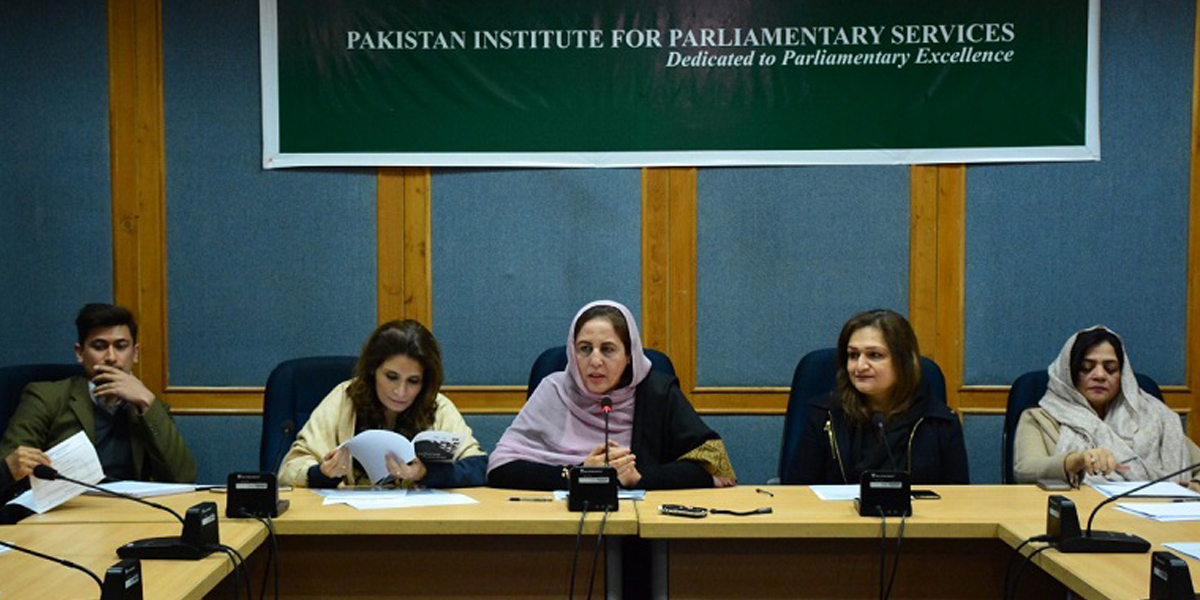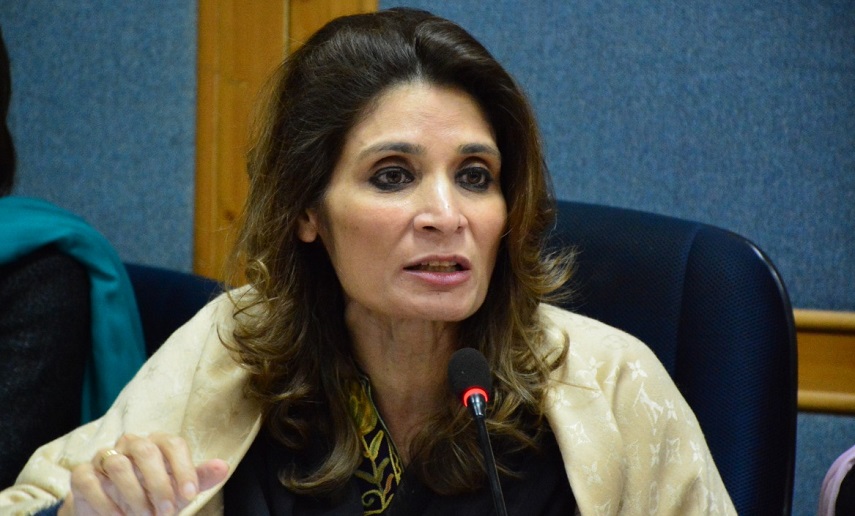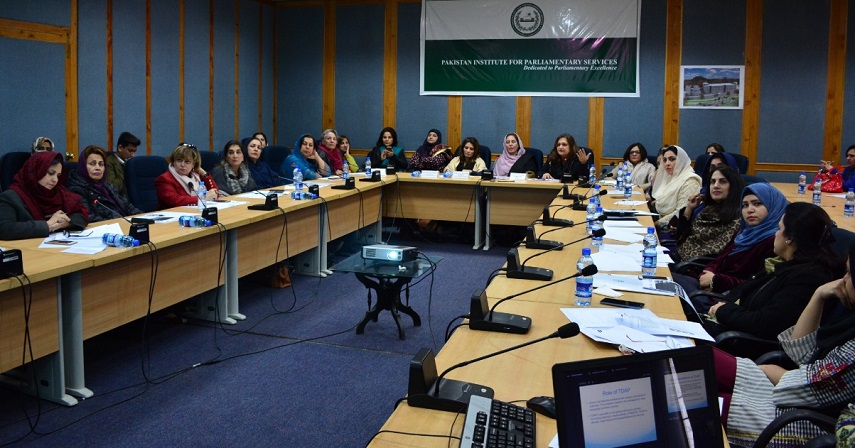There is a dire need to inculcate self-confidence and self-belief in the female youth leaders to improve participation of women in the future of Pakistan’s economic stability. Women in Pakistan have infinite potential, they just need opportunities for channelizing their potential and talent into a successful future. The economic empowerment of women require legislation for ease of doing business and to provide them a conducive economic environment. While it is encouraging to see the female chambers endeavoring to voice the female entrepreneurs’ concerns, it is important to have more women representation in the male chambers as a matter of equality. The leadership development of the business community members; motivating them to think outside the box is a fundamentally essential pre-requisite for business development and future growth.
These were the remarks made the parliamentary secretary for foreign affairs, Ms. Andleeb Abbas during the Public-Private Dialogue on Gender Focused Economic Reforms, organized by Center for Research and Security Studies (CRSS) – with the strategic support of Ms. Sajida Zulfiqar, MNA – at PIPS Hall, Parliament Lodges, Islamabad. The event witnessed an overwhelming participation of the members of parliament; especially female parliamentarians and private sector representatives along with the representatives of the State Bank and SMEDA.
Referring to the economic alienation of women, she underlined, “If 48% of the country’s overall population is not economically productive, how can we expect a country to develop”. For aspiring entrepreneurs, it is important to understand that more difficult than starting a business, it is to scale-up, sustain and grow a business.
Ms. Sajida Zulfiqar, MNA, moderating the discussion, said, “Given the increasing desire of the people to start their own businesses, we need to set-up more chambers to give them a platform to voice their concerns and create critical linkages between the chambers and the government to ensure inclusive policy making. The major chambers should also represent the small businesses and help them promote their business activities and generate traction beyond boundaries.
Ms. Ghazala Saifi, MNA said that the export oriented approach demands capacity building of exporters before they can compete in the international market and participate in the mainstream exports industry. A campaign to disseminate to the services on offer for the women entrepreneurs is extremely critical to enhance their economic participation. Women across all the sectors need to be part of the decision making processes as an intervention to close the gender gap.
Ms. Masooma Sibtain, former Vice President, Federation of Pakistan Chambers of Commerce & Industry (FPCCI) shared the priority intervention areas identified in the women national business agenda (WNBA) – a policy proposal on gender focused economic reforms presented from the platform of FPCCI. She called for the robust feedback of private sector on the potential avenues for enhanced economic participation of women given the impending SME policy and Strategic Trade Policy Framework (STPF) and their importance to reduce the alarming gender gap and add to the Pakistan’s GDP by about 30%.
The participating private sector leaders – mostly females – were of the view that the financing opportunities offered to the women entrepreneurs by the banks should be linked to their rating; in case of non-compliance, the banks’ ratings shall drop. This means a key role to be played by the central bank which should introduce regulations for mandatory financing opportunities for the women entrepreneurs. The successful women business leaders should be promoted as role models to inspire the aspiring the businesswomen to undertake the business activities. Private sector needs resources and research for innovation and growth in collaboration with the universities and with the funding of the state. The indigenous business women should be connected to the business portals to bypass the middlemen and make more profits.
They were appreciative of the overwhelming turn up of parliamentarians for dialogue on gender inclusive economic reforms and hoped for a meaningful response by the legislature on the issues conveyed, hence called for follow-up dialogues on the same.



